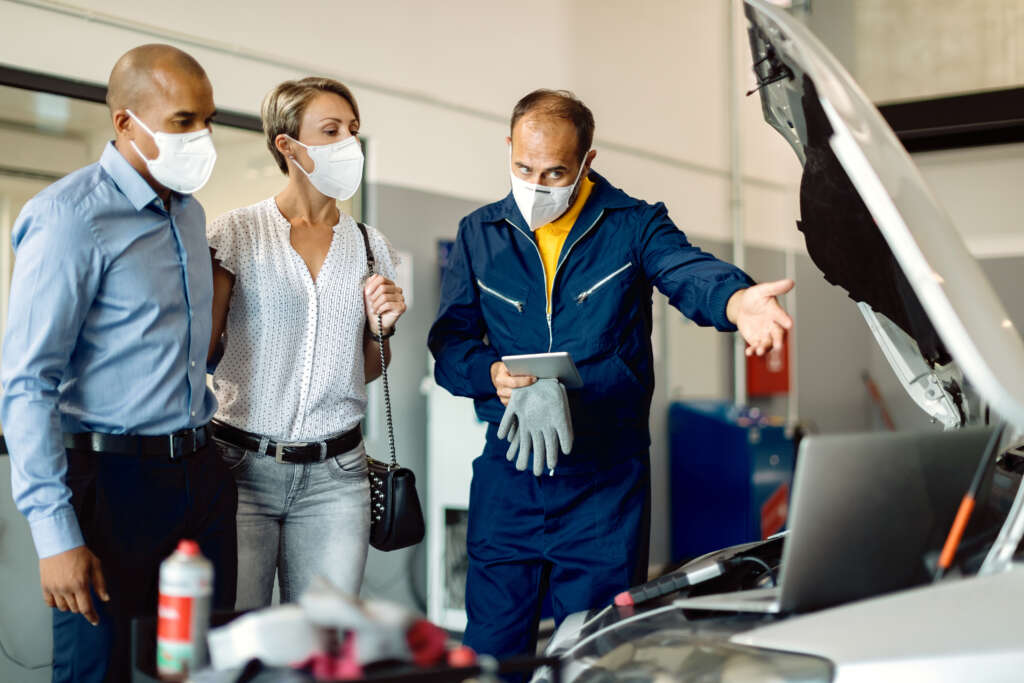In today’s fast-paced world, the importance of a vehicle inspection report cannot be overstated. Whether you’re purchasing a used car, preparing for a long road trip, or simply maintaining the health of your vehicle, ensuring it passes an inspection is essential. This guide will walk you through what a vehicle inspection report is, why it’s crucial, and how it can save you time and money.
What is a Vehicle Inspection Report?
A vehicle inspection report is a comprehensive document that details the condition of a vehicle after it has been thoroughly inspected. The report typically covers a variety of components including the engine, brakes, tires, lights, and emissions. It is commonly required by governments to ensure road safety, but it’s also beneficial for individual vehicle owners looking to stay on top of their car’s maintenance.
Vehicle inspections can be done at certified inspection centers, and they serve as an excellent way to gauge a car’s performance, safety features, and overall condition. Depending on your country or state, you may be required to obtain an inspection report annually or during specific circumstances such as vehicle registration.
Why is a Vehicle Inspection Report Important?
The vehicle inspection report plays a critical role in vehicle safety. It helps identify potential issues before they escalate into more serious (and expensive) problems. Some of the key reasons why a vehicle inspection report is crucial include:
- Road Safety: By conducting regular inspections, you ensure that your vehicle meets safety standards, thus reducing the chances of accidents.
- Legal Compliance: In many places, a vehicle inspection report is a legal requirement. Driving a car without a valid inspection can lead to hefty fines.
- Environmental Responsibility: Most vehicle inspection reports include emissions testing, helping to minimize harmful pollutants released into the environment.
- Resale Value: If you’re looking to sell your car, having a current vehicle inspection report gives buyers confidence in the car’s condition.
- Peace of Mind: Knowing that your vehicle is in good condition provides peace of mind for you and your passengers, especially during long journeys.
Key Components of a Vehicle Inspection Report
A typical vehicle inspection report will cover the following areas:
- Brakes: Ensures the braking system is functioning properly.
- Engine and Transmission: Checks for leaks, wear, and overall engine health.
- Suspension and Steering: Verifies that the suspension is stable and the steering system is responsive.
- Tires and Wheels: Inspects tread depth, tire pressure, and alignment.
- Lights and Indicators: Ensures all lights, including brake and signal lights, are working correctly.
- Emissions Testing: Measures the vehicle’s emissions to ensure it meets environmental standards.
How to Get a Vehicle Inspection Report?
To obtain a vehicle inspection report, follow these steps:
- Find a Certified Inspection Center: Look for government-approved inspection centers or garages that specialize in vehicle inspections.
- Schedule an Appointment: Once you’ve found a reliable center, schedule an appointment to have your vehicle inspected.
- Receive the Report: After the inspection is completed, you will receive a vehicle inspection report outlining the condition of your car and any necessary repairs or adjustments.
- Make Necessary Repairs: If your vehicle fails any part of the inspection, you’ll need to address the issues and possibly schedule a re-inspection.
Common Reasons for Failing a Vehicle Inspection
- Worn-out Tires: Low tread depth or uneven wear can cause failure.
- Faulty Brakes: If the brake pads are too thin or there are issues with the brake fluid, your car could fail.
- Emissions Issues: Failing to meet environmental standards can lead to an inspection failure.
- Lighting Problems: Non-functioning headlights, tail lights, or signal lights are common reasons for failure.
How to Use a Vehicle Inspection Report When Buying a Used Car
A vehicle inspection report is an invaluable tool when purchasing a used vehicle. It can help you avoid buying a car with hidden mechanical issues. Before finalizing a deal, ask the seller to provide a recent inspection report. If they can’t, arrange for one yourself to ensure the car is in good shape.
Conclusion
A vehicle inspection report is a small investment that can lead to big savings in terms of safety, legal compliance, and vehicle maintenance. Whether you need it for registration, selling, or simply for peace of mind, make sure your vehicle stays in top condition with a regular inspection.








Leave a Comment